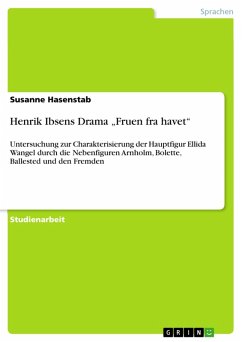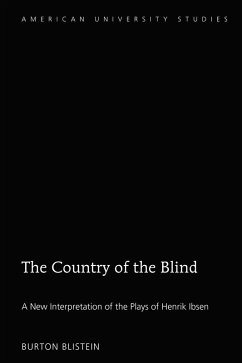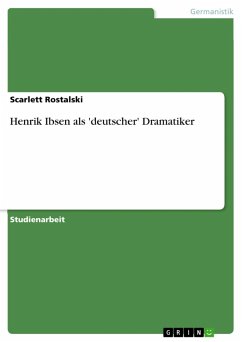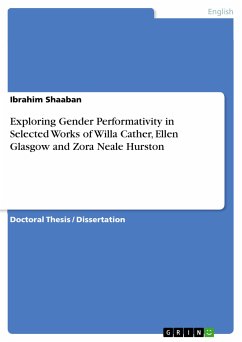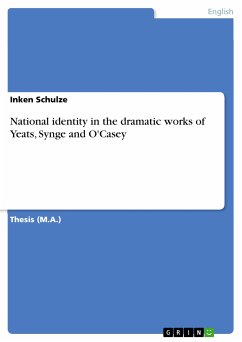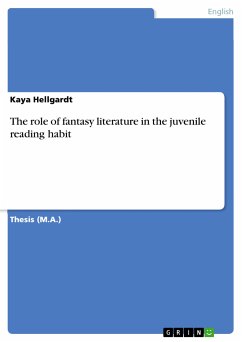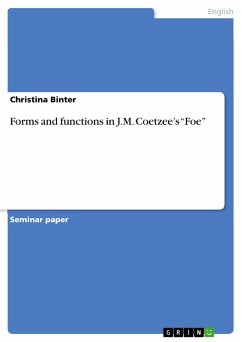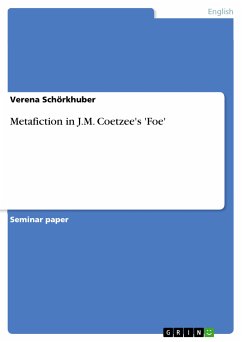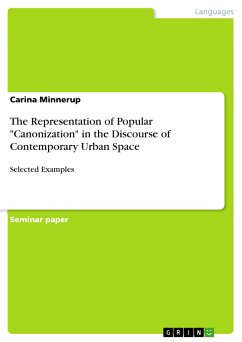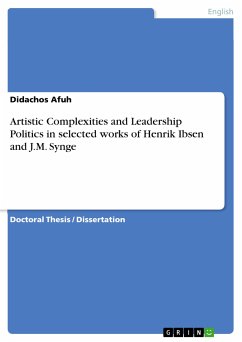
Artistic Complexities and Leadership Politics in selected works of Henrik Ibsen and J.M. Synge (eBook, PDF)
Versandkostenfrei!
Sofort per Download lieferbar
Statt: 52,95 €**
39,99 €
inkl. MwSt. und vom Verlag festgesetzt.
**Preis der gedruckten Ausgabe (Broschiertes Buch)
Alle Infos zum eBook verschenkenWeitere Ausgaben:

PAYBACK Punkte
0 °P sammeln!
Doctoral Thesis / Dissertation from the year 2016 in the subject English Language and Literature Studies - Other, grade: Excellent, University of Yaoundé I (University of Yaoundé 1), course: British Literature, language: English, abstract: This work sets out to show how Ibsen and Synge adopt an unconventional style in presenting conflicting and contradictory political alternatives. The work deals with the controversy that characterised the writings of the playwrights both in their subject matter and in their style. Specifically, their ideas on politics and gender relations challenged their c...
Doctoral Thesis / Dissertation from the year 2016 in the subject English Language and Literature Studies - Other, grade: Excellent, University of Yaoundé I (University of Yaoundé 1), course: British Literature, language: English, abstract: This work sets out to show how Ibsen and Synge adopt an unconventional style in presenting conflicting and contradictory political alternatives. The work deals with the controversy that characterised the writings of the playwrights both in their subject matter and in their style. Specifically, their ideas on politics and gender relations challenged their contemporaries and still remain the subject of scholarship today. This study thus defends the view that far from avoiding the burning issues of their days, the playwrights repeatedly challenged the central political debates of their respective societies. The work therefore discusses the political climate of Europe, and more particularly, the socio-political climate of Ibsen's Norway (between 1827 and 1913) and Synge's native Ireland during the struggle for home rule. Against this backdrop, the work shows how Ibsen and Synge responded to three political questions: the relationship between aristocratic and colonial leaderships on the one hand, and the democratic form on the other hand; between public opinion (national culture) and individual freewill; and between the law and collective progress.
Dieser Download kann aus rechtlichen Gründen nur mit Rechnungsadresse in A, B, BG, CY, CZ, D, DK, EW, E, FIN, F, GR, HR, H, IRL, I, LT, L, LR, M, NL, PL, P, R, S, SLO, SK ausgeliefert werden.




